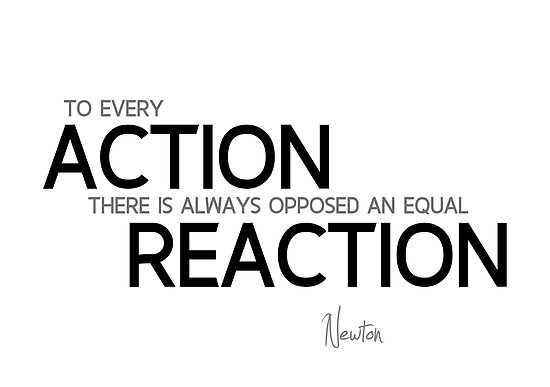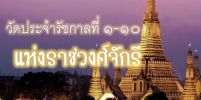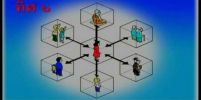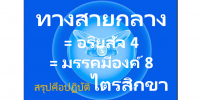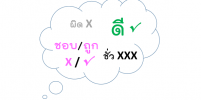Buddhism EP. 10 : Law of Kamma (2) !!!
The Law of Kamma seems to correspond to Newton law. When we talk about the Law of Kamma, we focus both on action and reaction; intentional action is referred to as “action”, and its ripened effect is referred to as “reaction”. http://winne.ws/n24940
Let’s study together thru the conversation of the students who really need to know about “Buddhism”
Alan : Does this mean that every Buddhist
must be reborn again ?
Porn : Well, in Buddhism, what binds us in
the Cycles of Existence are
defilements, namely desire,
hatred, and delusion. This means
that all creatures that are not yet
free from defilements, without
exception, must be reborn
endlessly.
Alan : This is really new to me. Do I have
to be reborn again? Where?
In Thailand, in England or
elsewhere? And how? Rich or poor?
Do I have freedom of choice?
Porn : Well, choices have to be made in
this life, for our intentional actions
condition future existence.
Alan : You once said that you have to
choose your next rebirth during
this lifetime.
Porn : Yes, I did. In Buddhism,
intentional actions condition
future existence. That is, kammas
performed in the present, if they
have not yet borne fruit in this
very life, will manifest their effects
either in our next rebirth or in
subsequent rebirths.
Alan : Does this mean that our states of
rebirth are conditioned by present
kammas ?
Porn : That’s right. Similarly, our present
states of existence have been
conditioned by our past kammas.
So, if we wish for a fortunate
rebirth, we must only cultivate
wholesome actions in this life.
This is the meaning of
“choice of rebirth”.
Alan : It’s frightening to consider the
torment that bad kamma will
bring.
Porn : I think it’s greatly beneficial for
us to understand the Law of
Kamma, especially the
“reproductive kamma”. Once
we understand that in our own
life every action will have a
similar and equal reaction, we
will certainly want to refrain from
all unwholesome behavior. Once
we understand that wholesome
actions have happiness as their
fruit, we will avoid unwholesome
actions, and try to cultivate only
wholesome actions in order to
avoid suffering.
Alan : Porn, a moment ago, you talked
about action and reaction, is that
a physical law ?
Porn : Yes, Newton formulated this law.
It states that every action must
have a similar and equal opposite
reaction. The Law of Kamma
seems to correspond to this law.
This is because when we talk
about the Law of Kamma, we
focus both on action and reaction;
intentional action is referred to as
“action”, and its ripened effect is
referred to as “reaction”.
Alan : I see. Cause and effect are to be
found not only in the Four Noble
Truths but also in the Law of
Kamma.
Porn : Yes, that’s true. The Law of
cause and effect will be found in
many buddhist discourses.
Alan : By the way, I’m doubtful about
the effects of some actions done
without intention.
Porn : Oh, yes, I know you mean. It is
said that actions which are
unintentional do not bring
about any future effect.
Supposing a mosquito alights
on your arm, you then kill it.
Such action is an intentional one
and therefore it is kamma with
a potential effect. But when you
are sleeping, you unknowningly
crush a mosquito on your sheet.
You have done this without
intention. Thus your action is
without future effect. Both cases
can be applied to any other
intentional or unintentional actions.
Alan : I’m happy to hear this, for I
accidentally ran over a pup and
killed it yesterday.
Porn : Unintentional action is known as
ineffective kamma because it has
no moral consequence. However,
it’s better to avoid destroying life,
no matter whether it’s intentional
or not, for every creature “values”
its life.
Thanks & regards : AJ S. Srisopa (Cr. All Dhammateachers) & Law of Kamma /2

